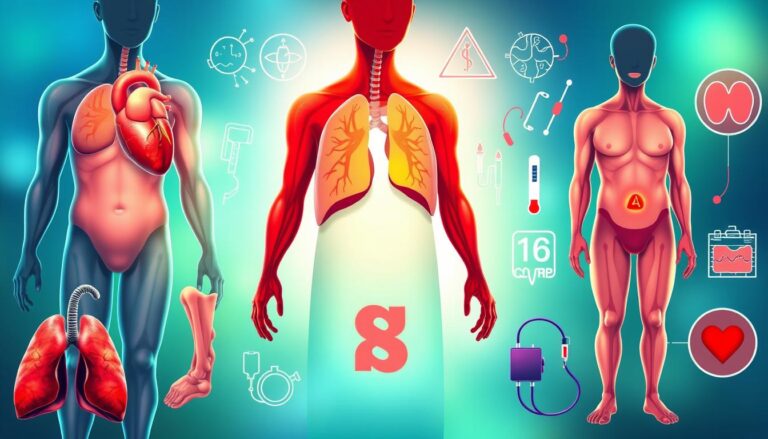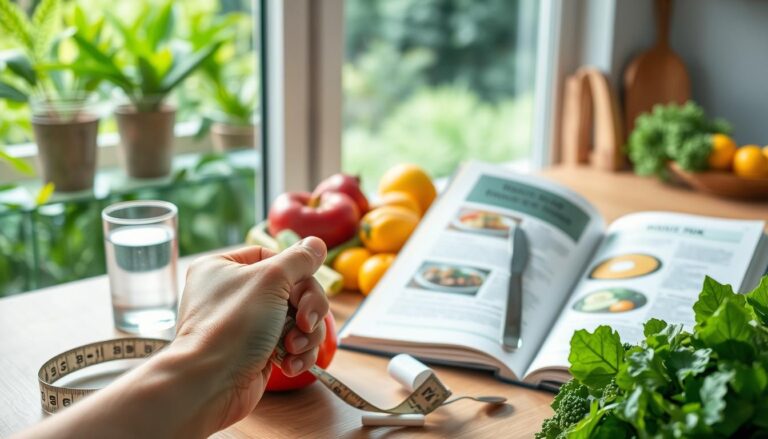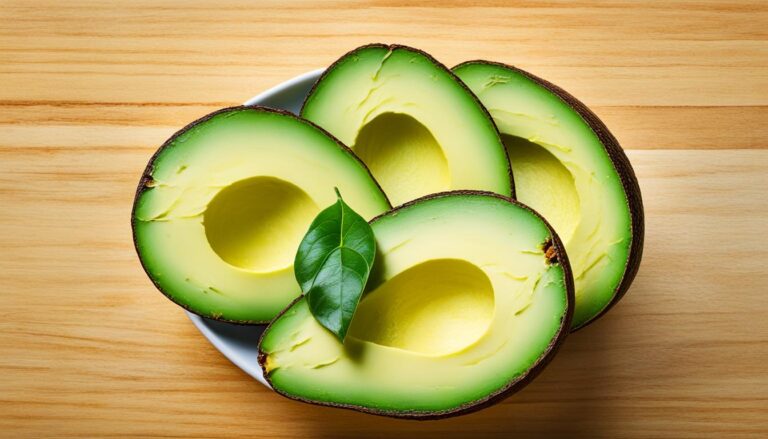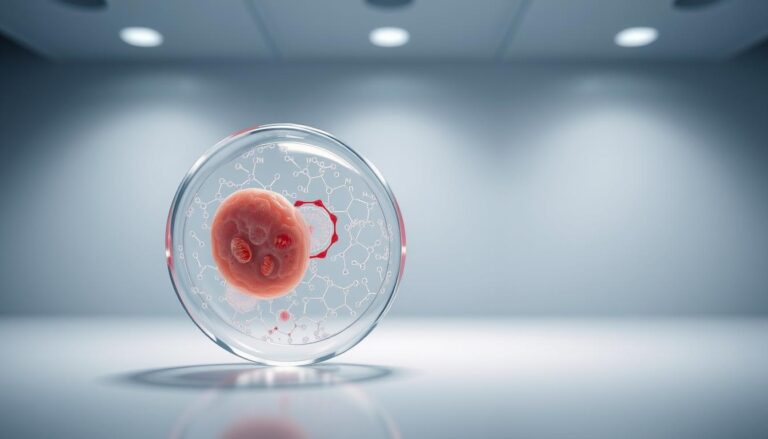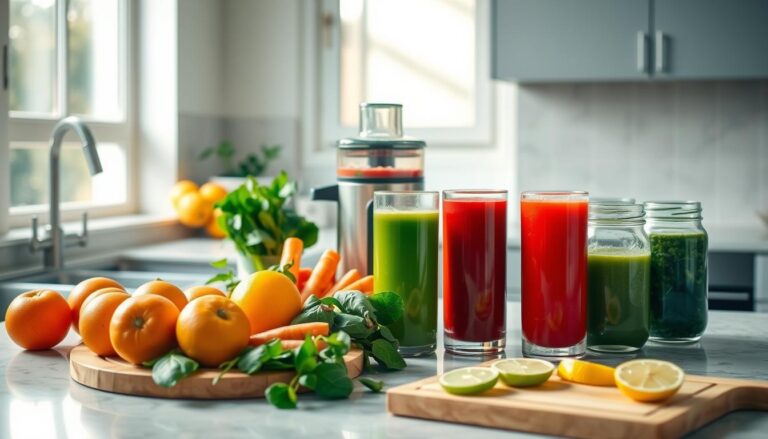In today’s world free radicals and oxidative stress are big threats to our health. But what if we told you the answer isn’t just one thing?
It’s actually a mix of nature’s best antioxidants working together. Get ready to learn about the top antioxidants and how they keep your body healthy.
Key Takeaways
- Discover the diverse range of antioxidants and their unique properties
- Explore the vital roles vitamins minerals, and phytochemicals play in combating free radicals
- Learn about the top antioxidant rich foods that can be easily incorporated into your diet
- Understand the importance of antioxidants in disease prevention and overall health
- Delve into the science behind the most potent antioxidant combinations
Understanding Antioxidants and Their Sources
Antioxidants are important for fighting oxidative stress in our bodies. They work hard to stop free radicals from harming our cells and DNA. Knowing about the different antioxidants and where they come from helps us stay healthy.
Vitamins and Their Roles
Vitamins are key nutrients that act as strong antioxidants. Vitamin C is found in citrus fruits and leafy greens. It helps fix tissues and make neurotransmitters. Vitamin E is in nuts and seeds and protects cell membranes from damage.
Vitamin A and beta carotene are important for skin and eye health. You can get them from animal products and orange or dark green veggies.
Minerals and Antioxidant Functions
Some minerals are antioxidants too. Selenium is in Brazil nuts, seafood, and grains. It helps enzymes reduce oxidative stress. Zinc is in meat, shellfish, beans, and seeds. It supports the body’s antioxidant defenses.
Phytochemicals in Plants
Plants are full of antioxidant compounds called phytochemicals. Lycopene a red phytochemical in tomatoes and watermelon may lower cancer risk. Flavonoids and polyphenols are in berries, tea and red wine. Eating a variety of fruits veggies, and plants gives us many antioxidants for good health.

Antioxidants are crucial in reducing free radical damage, which has been linked to age-related health issues such as heart disease macular degeneration Alzheimer’s disease, and cancer.
Top 10 Antioxidants Rich Foods
Adding a mix of antioxidant-rich foods to your diet is key for staying healthy. Here are the top 10 foods loaded with antioxidants you should eat often:
- Berries – Blueberries, strawberries, raspberries, and blackberries are full of vitamin C, flavonoids, and anthocyanins.
- Citrus Fruits Oranges lemons limes, and grapefruits are loaded with vitamin C and antioxidants to boost your immune system.
- Leafy Greens Kale, spinach Swiss chard, and collard greens are packed with carotenoids, vitamins A and C, and antioxidants.
- Cruciferous Vegetables Broccoli, cauliflower, Brussels sprouts, and cabbage have glucosinolates that fight free radicals and reduce inflammation.
- Nuts and Seeds Walnuts, almonds flaxseeds, and chia seeds are great for antioxidants like vitamin E, selenium, and polyphenols.
- Herbs and Spices Cinnamon, ginger turmeric, and garlic are full of antioxidants that fight free radicals.
- Dark Chocolate – Dark chocolate with high cocoa content is full of antioxidants, including flavonoids that are good for the heart.
- Green Tea – Drinking green tea gives you a lot of antioxidants, especially catechins which lower the risk of chronic diseases.
- Beans and Legumes Lentils black beans kidney beans, and chickpeas are packed with antioxidants like polyphenols and flavonoids.
- Sweet Potatoes – These bright orange tubers are a great source of beta carotene protecting against cancer and heart disease.
Adding these antioxidant rich foods to your meals every day can greatly improve your health and well-being.
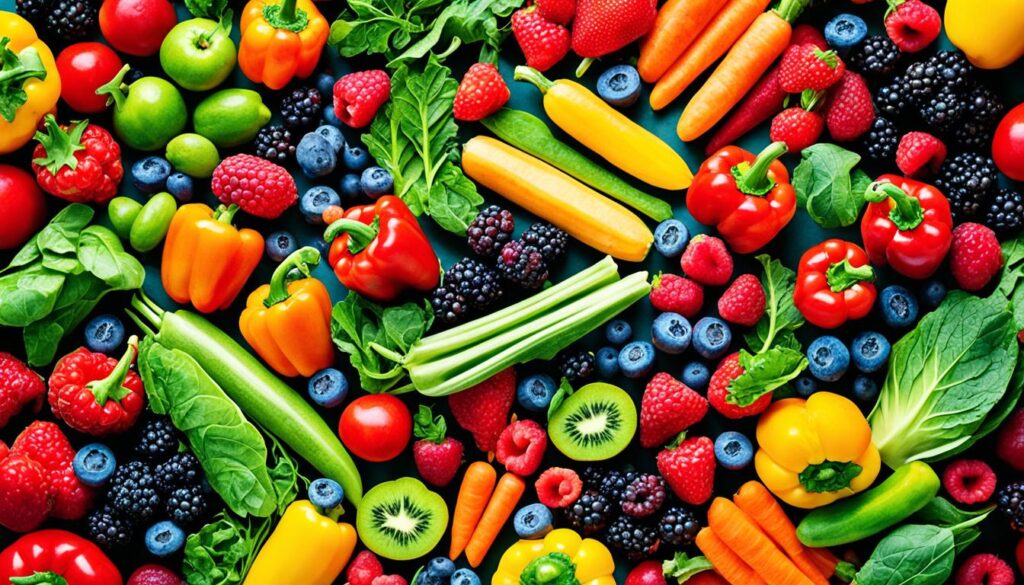
Read more: Antioxidant Foods Nourish Your Body Naturally
One cup of fresh or frozen berries a day is recommended for a good source of antioxidants.
The Role of Antioxidants in Disease Prevention
Antioxidants are key in protecting the body from many diseases. They fight off free radicals and lower oxidative stress. This helps prevent and slow down several health issues.
Heart Disease
Vitamins like E and beta-carotene help control blood pressure and fight inflammation in blood vessels. This action stops LDL cholesterol from oxidizing. LDL cholesterol is a big part of plaque buildup in arteries, which can lead to heart disease.
Cancer
Nutrients such as vitamin C, selenium, and flavonoids shield cells from damage that could lead to cancer. They neutralize free radicals reducing oxidative stress. This stress can change DNA which is a step towards cancer.
Diabetes
Antioxidants are vital for those at risk of diabetes. They help manage blood sugar and make insulin work better. Alpha-lipoic acid is especially good at fighting diabetes complications by lowering oxidative stress.
Neurodegenerative Diseases
Antioxidants like coenzyme Q10 and glutathione protect the brain from free radicals linked to Alzheimer’s and Parkinson’s. They support brain health reducing the risk of these serious conditions.
A diet rich in antioxidants can lower the risk of certain types of cancer.
What is the Most Powerful Antioxidant?
Scientific studies show that astaxanthin is the top antioxidant. It comes from certain microalgae and is called the king of antioxidants. This is because it fights free radicals and shields the body from oxidative stress better than most.
Astaxanthin is much stronger than other carotenoids and vitamin E. It can be up to 10 times stronger than beta-carotene and 100 times stronger than vitamin E. This compound wraps around the cell membrane, protecting cells, tissues, and organs from damage.
| Antioxidant | Relative Antioxidant Strength |
|---|---|
| Astaxanthin | 1 |
| Beta-Carotene | 0.1 |
| Vitamin E | 0.01 |
Astaxanthin helps with heart health, reduces inflammation, improves skin, and boosts athletic performance. Its strength and versatility make it a top choice among antioxidants.
Adding astaxanthin to your diet, through food or supplements helps fight free radicals. This supports your health and well-being.
Astaxanthin is a unique antioxidant that can span the entire cell membrane providing comprehensive protection against oxidative damage.
Antioxidant Supplementation and Intake
Choosing between natural and supplemental antioxidants is key to boosting your intake. Natural antioxidants are found in many foods and work together to protect the body. Supplements on the other hand focus on specific nutrients like vitamin C, vitamin E, or selenium, giving you more of them.
Natural vs. Supplemental Antioxidants
Supplements are easy to use to get more antioxidants, but natural sources are better for overall health. Foods like veggies fruits, grains beans, and nuts are full of antioxidants. They give you a broad range of nutrients. Eggs and dairy from animals also have antioxidants but not as much as plant-based foods.
Recommended Dosages
Different antioxidants need different amounts each day. Vitamin C is 75 mg for women and 90 mg for men. Vitamin E is safe up to 15 mg (or 22.4 IU) daily. Selenium should not go over 55 micrograms a day for most adults. Taking too much can be dangerous.
Potential Risks and Interactions
Antioxidant supplements can affect how other medicines work and can be harmful if taken too much. Too much vitamin E might increase the risk of a certain type of stroke. Too much selenium can cause hair and nail loss. Always talk to a doctor before starting new supplements especially if you’re on other medications.
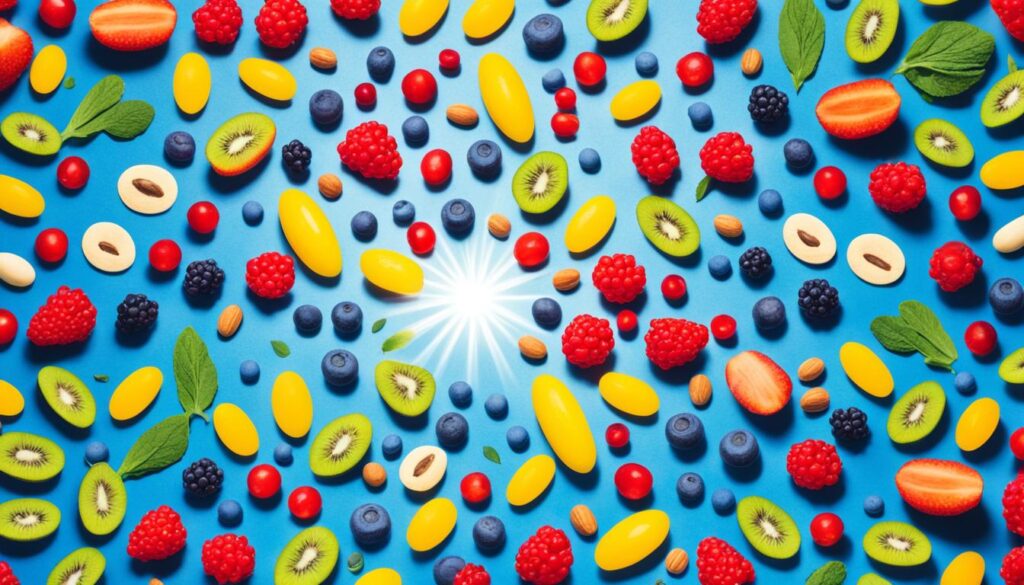
Read more: What Does Vitamin E Vitamin Do?
In conclusion while supplements can help with antioxidants, be careful and know the differences between natural and supplemental sources. Talking to a healthcare professional ensures you’re taking the right supplements safely. This way, you can get the most benefits without risks.
Antioxidants for Skin Health and Anti Aging
As we get older, our skin changes in ways that show aging like wrinkles and loss of elasticity. Antioxidants are key in keeping the skin young and healthy. They fight off free radicals that harm collagen.
Vitamins C, E, and beta-carotene are superstars for skin health. They shield the skin from UV radiation and pollution. These antioxidants also help repair and refresh the skin fighting aging signs.
Antioxidants and Aging
As we age our bodies make less collagen causing wrinkles and fine lines. Antioxidants like vitamin C and vitamin E fight off free radicals that break down collagen. This keeps the skin strong and looking young.
Skin Protective Effects
Our skin faces many dangers, like UV radiation and pollution, which speed up aging and harm skin cells. Using antioxidants on the skin acts as a shield. Vitamin C and vitamin E work well together to protect against UV damage. Lycopene found in tomatoes, also helps lessen skin redness from UV rays.
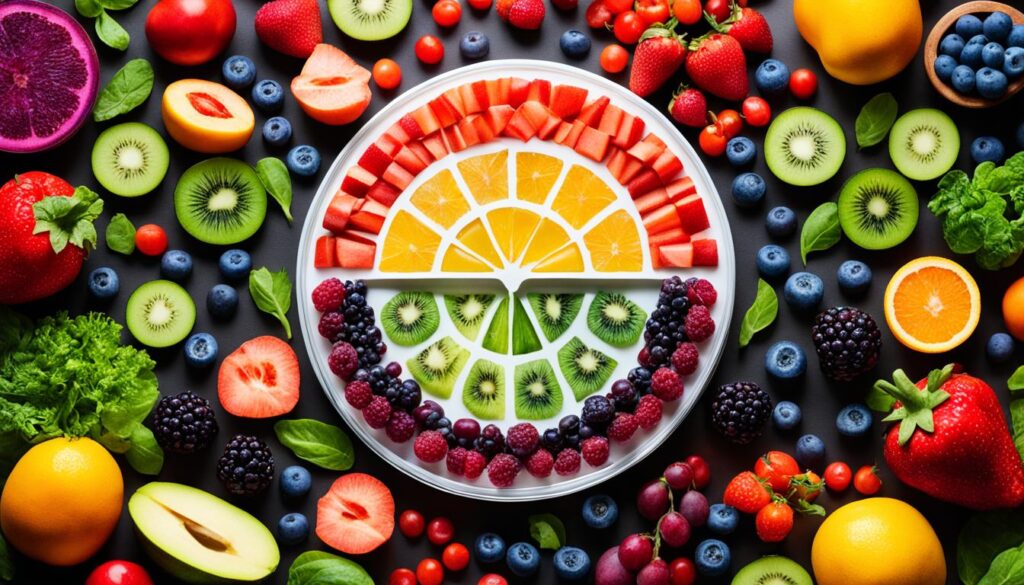
Read more: Rapid skin renewal skin treatment
Antioxidants play a critical role in preserving the skin’s health and youthful appearance as the body ages.
The Science Behind Antioxidants
Antioxidants are key players in fighting off free radicals, harmful molecules that damage our cells and DNA. They are found in foods and supplements. These substances are vital in stopping free radicals from causing cell damage and disease.
The science of antioxidants is both interesting and complex. There are 8,000 different polyphenol antioxidants in nature, each with its own way of working. Inside our cells there are special enzymes like superoxide dismutase SOD catalase CAT glutathione peroxidase GPx, and glutathione reductase GRx that fight free radicals.
Our bodies also make metabolic antioxidants through various processes. These include lipoic acid, glutathione coenzyme Q10 melatonin, and uric acid. These antioxidants help keep our cells balanced, preventing damage that can lead to serious diseases.
We also get antioxidants from outside our bodies like carotenoids vitamins C and E, selenium zinc and plant chemicals. These work with our internal antioxidants to fight free radicals and keep our cells healthy.
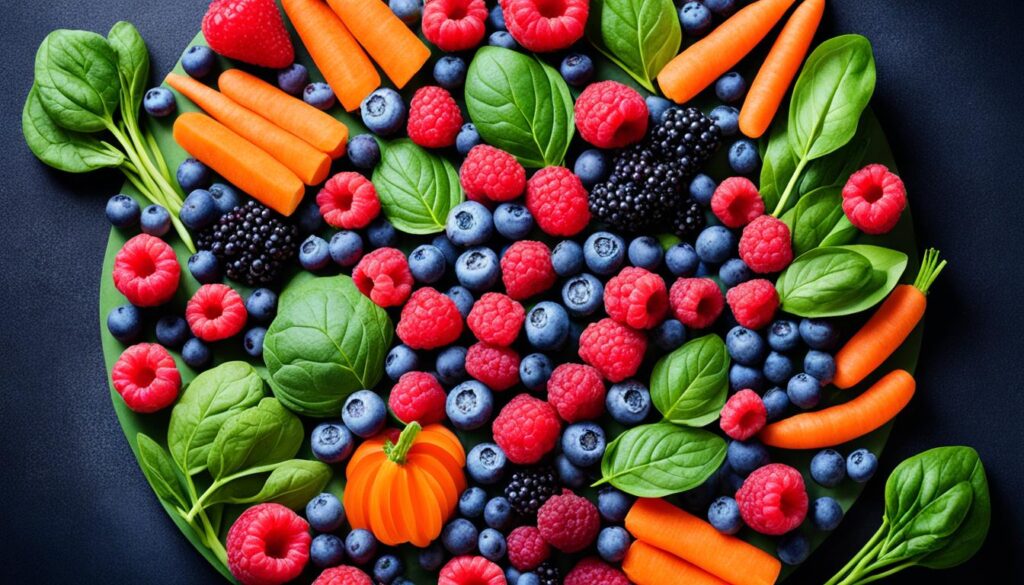
Read more: The Top 7 Vitamins for Radiant Skin
The study of antioxidants shows how amazing our bodies are. By learning about how they work, we can make better choices for our health. Whether it’s eating well or taking supplements, finding the right approach is key.
Combining Antioxidants for Optimal Benefits
Antioxidant combinations are key to great health and glowing skin. Vitamin C and vitamin E work well together, with ferulic acid and phloretin making vitamin C even better. Adding different antioxidants to your skincare or diet boosts your health big time.
Vitamin C is a top antioxidant that helps make collagen and lightens dark spots. When you mix it with vitamin E, which helps skin heal faster you get a strong team. Ferulic acid and phloretin keep vitamin C strong and effective longer.
But there’s more to antioxidant teamwork. Niacinamide, or vitamin B3, fights fine lines, wrinkles and dark spots and reduces inflammation. Resveratrol from grapes and berries adds more anti inflammatory and germ-fighting powers.
| Antioxidant | Key Benefits |
|---|---|
| Vitamin C | Boosts collagen, fades dark spots |
| Vitamin E | Accelerates skin healing, stabilizes other antioxidants |
| Ferulic Acid | Stabilizes and enhances vitamin C |
| Phloretin | Stabilizes and enhances vitamin C |
| Niacinamide | Reduces fine lines, wrinkles, and hyperpigmentation |
| Resveratrol | Offers anti-inflammatory, antibacterial, and antifungal benefits |
Before adding antioxidants to your routine, talk to a dermatologist or healthcare expert. They can help you choose the best mix and amounts for your skin and health needs. With the right mix of antioxidants, you can see amazing results for your skin and health.
Conclusion
As we end our journey into antioxidants it’s clear they’re key to staying healthy and feeling good. They protect the heart fight cancer, and keep our skin looking young. Antioxidants are vital for a lively life.
We’ve learned about the different types of antioxidants, where to find them, and what they do. Now, we can make smart choices to add them to our daily routine. Enjoying a glass of pomegranate juice or taking CoQ10 supplements are great ways to boost our health.
Let’s welcome antioxidants into our lives fully. They’re like the stars of our health show making us strong flexible, and young in spirit. With antioxidants we can reach our best potential and live well.

